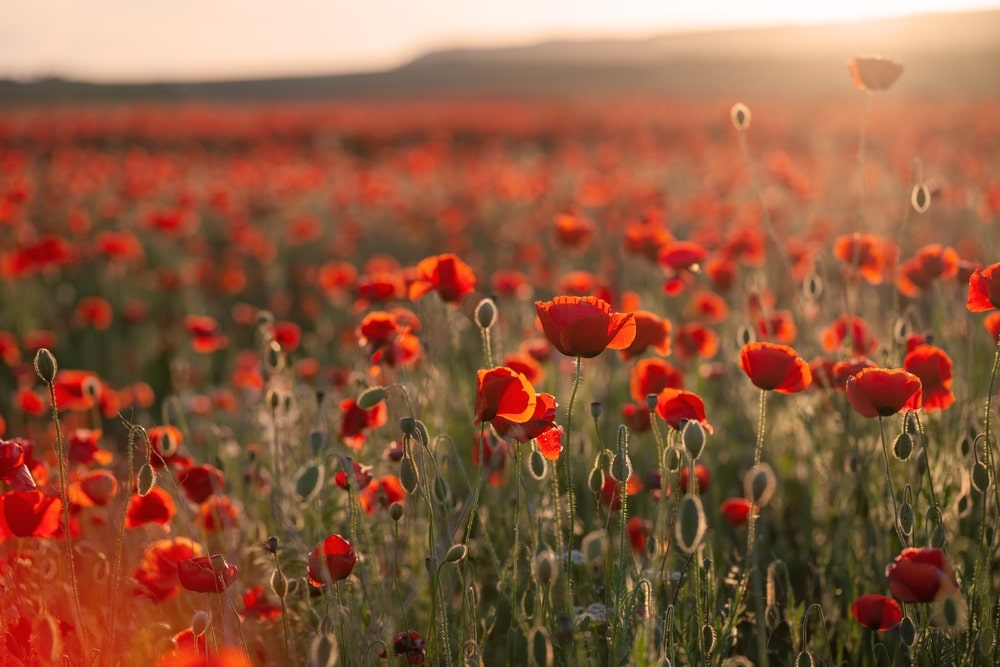Grief can rear its head at any moment – at the dinner table, at a holiday family gathering, at the grocery store, or at a child’s piano recital. And this is okay. It’s normal and natural to experience intense bursts of deep emotion during the most ordinary of moments after a loss. But did you know that practicing remembrance and gratitude can help you work through your grief and find your way toward healing?
The Power of Remembrance & Gratitude
As human beings, our memories play a big role in the way we experience life. All you have to do is talk to the family member of a dementia patient to understand that memory is both a powerful and beautiful gift. It’s one that we often don’t appreciate until it’s threatened.
During times of grief, our memories help us process loss. Remembrance allows us to recall and reflect on favorite memories and reminisce about a loved one’s many quirks and beauties. Then, when remembrance is paired with gratitude, we look beyond the pain of now and dwell on the good things in life – both the cherished moments of yesterday and the coming memories of tomorrow. Together, remembrance and gratitude help us heal.

Nationally recognized grief counselor and educator Dr. Alan Wolfelt puts it this way:
The truth, paradoxically, is that in grief, we have to go backward before we can go forward.
In my experience, remembering the past is the very thing that eventually makes hoping for the future possible. Mourners’ lives will open to renewed hope, love, and joy only to the extent that they first embrace the past. Those who fail to go backward before marching forward after a loss often find themselves stuck in the morass of carried grief.
The loss created by death is the loss of the physical presence of the person who died. In the physical plane, their relationship with the person has ended, and so they grieve. But on the emotional and spiritual planes, their relationship with the person who died continues because they will always have a relationship of memory.
Precious memories, dreams reflecting the significance of the relationship, and objects that link them to the person who died are examples of some of the things that give testimony to a different form of continued relationship.
Simple Ways to Practice Remembrance and Gratitude
When practicing remembrance and gratitude, the most important thing is to take your time. Depending on your personality, you may want to spend time journaling or drawing, engaging in physical activity, watching your loved one’s favorite movie, cranking up favorite music, or talking with a close friend who’s prepared to listen.
How you choose to engage with your memories and honor your loved one’s life is less important than actually doing it. Each time, you may do the same thing, or you may do something different. Both options are completely fine.
Here are a few ideas to help you honor and remember a loved one’s life as you practice gratitude:
- Set a plate out for them at family gatherings
- Mark their birthday in a special way
- Host a dinner in their honor and ask guests to share stories
- Volunteer with organizations that champion your loved one’s passions
- Keep a journal of memories and thoughts
- Set up a permanent memorial and visit regularly
- Create a memorial keepsake (video, photobook, memory box, etc.)
Don’t Rush the Process
You will have multiple opportunities each day to practice remembrance and gratitude. As memories surface – triggered by sights, smells, events – take a moment to engage with the memory and then move toward gratitude.
For example, when washing your whites, you might remember a time when your loved one accidentally threw a red sock into the load of whites, and it turned the entire load pink. In that moment, smile at the memory and let it sit in your mind. Then, take a moment to reflect: “At first, I was so mad, but then we laughed about it. I’m so grateful we had moments like that. I miss you.” And then, take a deep, cleansing breath and continue with your laundry.
It will take practice. At first, the memories may be strong and feel like too much. That’s okay. Over time, the intensity will decrease, and you will be able to engage more easily. After all, grief is a journey, and the ultimate goal isn’t to stop missing the person you love. The goal is to find a way to move forward with hope, healing, and peace with beloved memories by your side.
What If I Don’t Miss the Person Who Has Died?
It would be remiss not to acknowledge that people are messy, complicated, and can be difficult – some more than others. If the person who has died was a difficult person in your life, it’s alright to breathe a sigh of relief – this is a completely normal reaction. After that, it’s time to get to work.
Even if you don’t miss the person who has died, you need to work through your feelings for your own well-being. This may mean processing through anger, disappointment, hurt, and painful memories. The work will be difficult (and you may need a professional therapist to help you through the process), but those who never deal with the pain and wrongdoing done to them often end up hurting, broken, and sometimes angry, people. In some cases, they themselves become the “difficult person” in someone else’s life, and the cycle continues.
While moments of gratitude may be few and far between with a difficult person, remembrance will help you unpack any deep emotional baggage. After all the trauma you experienced, its effects won’t end simply because the person who inflicted them has died. We must still learn how to reconcile with our past and move forward toward the future in a healthy way.
Get Started Today
Now that you understand the power of remembrance and gratitude and how together they can greatly impact your grief journey, it’s time to get started. Pull out the family photos. Watch videos that feature your loved one. Remember the moments – both the good and the bad. Practice writing down or saying out loud what you are most grateful for with each memory. Find ways to honor your loved one’s life in creative ways.
As you participate in these healing actions, your heart will fill with warmth and love. In time, the sting will lessen. And while you will always miss the physical presence of the person you love, you will remember them with great fondness and celebrate their life, legacy, and lasting impact.








